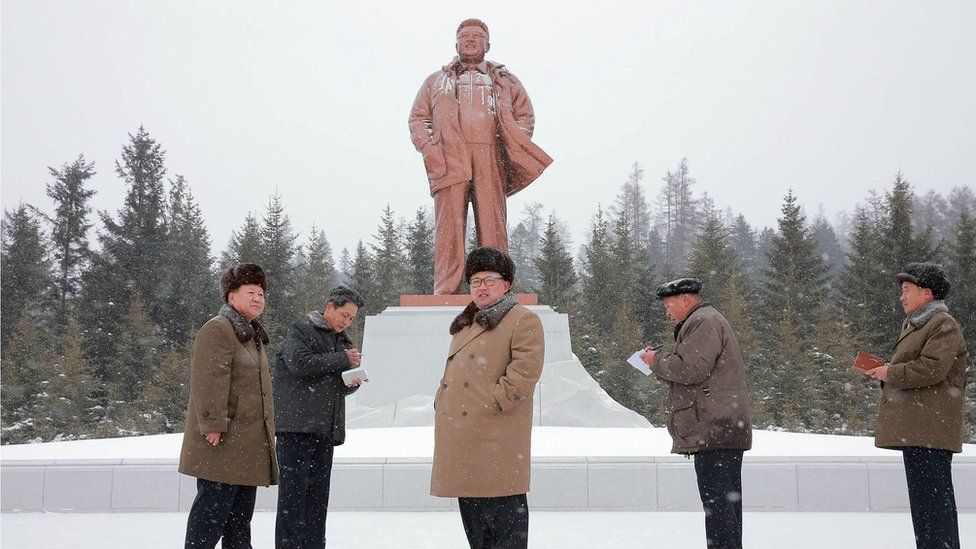North Korea sanctions: UN curbs lucrative coal trade with China
- Published

The UN Security Council has slapped new sanctions on North Korea over its nuclear programme, this time targeting its valuable coal exports to China.
Coal exports will be slashed by about 60% under a strict new sales cap.
China agreed to the sanctions after months of negotiations with the United States following North Korea's fifth and largest nuclear test in September.
Exports of copper, nickel, silver, zinc and the sale of statues will also be banned.
The council unanimously approved the sanctions resolution.
As the reclusive country's primary ally, China has traditionally protected it diplomatically, fearful of what might happen if the government collapses. It has, however, grown increasingly impatient with its actions.
North Korea has been under UN sanctions since 2006 over its nuclear and missile programme.
Coal is North Korea's top export earner and diplomats say the export cap of 7.5m metric tonnes would cost it $700m (£562m) in lost earnings compared with 2015 sales. China is believed to be the only state that buys North Korean coal.
UN Secretary-General Ban Ki-moon said the sanctions sent an "unequivocal message that the DPRK must cease all the provocative actions and comply fully with its international obligations".
He added: "Sanctions are only as effective as their implementation."
Samantha Power, the US ambassador to the UN, admitted that "no resolution in New York will likely tomorrow persuade Pyongyang to cease its relentless pursuit of nuclear weapons".
But, she said, "unprecedented costs" were being placed on North Korea for defying the international community.
The resolution also blacklisted 11 more people and 10 entities said to be connected to North Korea's nuclear and ballistic missile programme, imposing a travel ban and asset freezes.
- Published10 August 2017
- Published10 September 2016
- Published14 September 2016